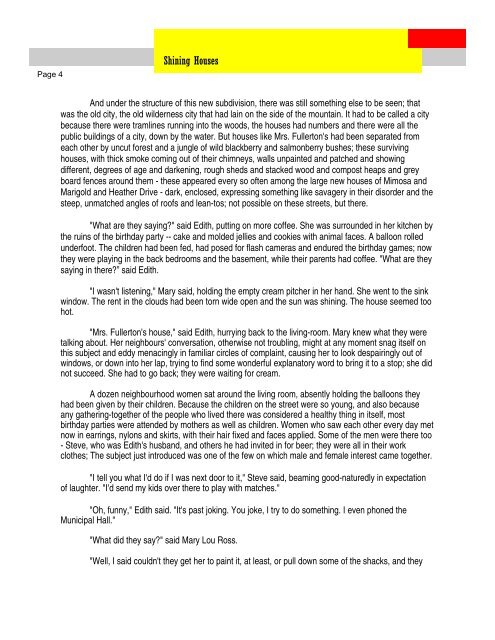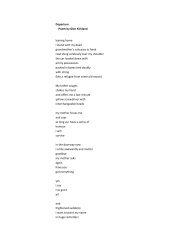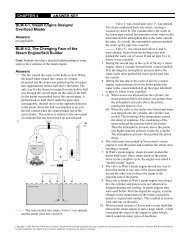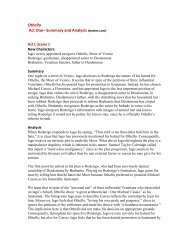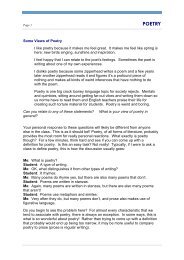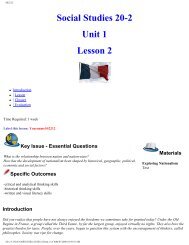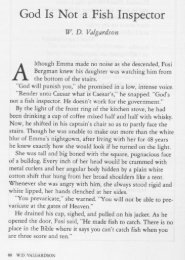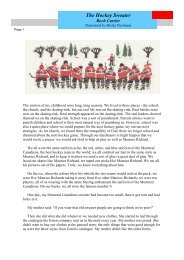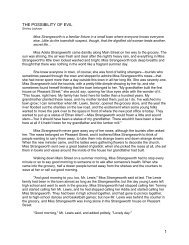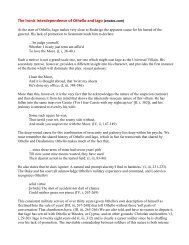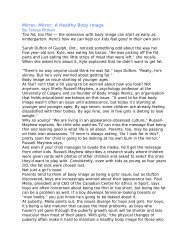You also want an ePaper? Increase the reach of your titles
YUMPU automatically turns print PDFs into web optimized ePapers that Google loves.
Page 4<br />
<strong>Shining</strong> <strong>Houses</strong><br />
And under the structure of this new subdivision, there was still something else to be seen; that<br />
was the old city, the old wilderness city that had lain on the side of the mountain. It had to be called a city<br />
because there were tramlines running into the woods, the houses had numbers and there were all the<br />
public buildings of a city, down by the water. But houses like Mrs. Fullerton's had been separated from<br />
each other by uncut forest and a jungle of wild blackberry and salmonberry bushes; these surviving<br />
houses, with thick smoke coming out of their chimneys, walls unpainted and patched and showing<br />
different, degrees of age and darkening, rough sheds and stacked wood and compost heaps and grey<br />
board fences around them - these appeared every so often among the large new houses of Mimosa and<br />
Marigold and Heather Drive - dark, enclosed, expressing something like savagery in their disorder and the<br />
steep, unmatched angles of roofs and lean-tos; not possible on these streets, but there.<br />
"What are they saying?" said Edith, putting on more coffee. She was surrounded in her kitchen by<br />
the ruins of the birthday party -- cake and molded jellies and cookies with animal faces. A balloon rolled<br />
underfoot. <strong>The</strong> children had been fed, had posed for flash cameras and endured the birthday games; now<br />
they were playing in the back bedrooms and the basement, while their parents had coffee. "What are they<br />
saying in there?” said Edith.<br />
"I wasn't listening," Mary said, holding the empty cream pitcher in her hand. She went to the sink<br />
window. <strong>The</strong> rent in the clouds had been torn wide open and the sun was shining. <strong>The</strong> house seemed too<br />
hot.<br />
"Mrs. Fullerton's house," said Edith, hurrying back to the living-room. Mary knew what they were<br />
talking about. Her neighbours' conversation, otherwise not troubling, might at any moment snag itself on<br />
this subject and eddy menacingly in familiar circles of complaint, causing her to look despairingly out of<br />
windows, or down into her lap, trying to find some wonderful explanatory word to bring it to a stop; she did<br />
not succeed. She had to go back; they were waiting for cream.<br />
A dozen neighbourhood women sat around the living room, absently holding the balloons they<br />
had been given by their children. Because the children on the street were so young, and also because<br />
any gathering-together of the people who lived there was considered a healthy thing in itself, most<br />
birthday parties were attended by mothers as well as children. Women who saw each other every day met<br />
now in earrings, nylons and skirts, with their hair fixed and faces applied. Some of the men were there too<br />
- Steve, who was Edith's husband, and others he had invited in for beer; they were all in their work<br />
clothes; <strong>The</strong> subject just introduced was one of the few on which male and female interest came together.<br />
"I tell you what I'd do if I was next door to it," Steve said, beaming good-naturedly in expectation<br />
of laughter. "I'd send my kids over there to play with matches."<br />
"Oh, funny," Edith said. "It's past joking. You joke, I try to do something. I even phoned the<br />
Municipal Hall."<br />
"What did they say?" said Mary Lou Ross.<br />
"Well, I said couldn't they get her to paint it, at least, or pull down some of the shacks, and they


